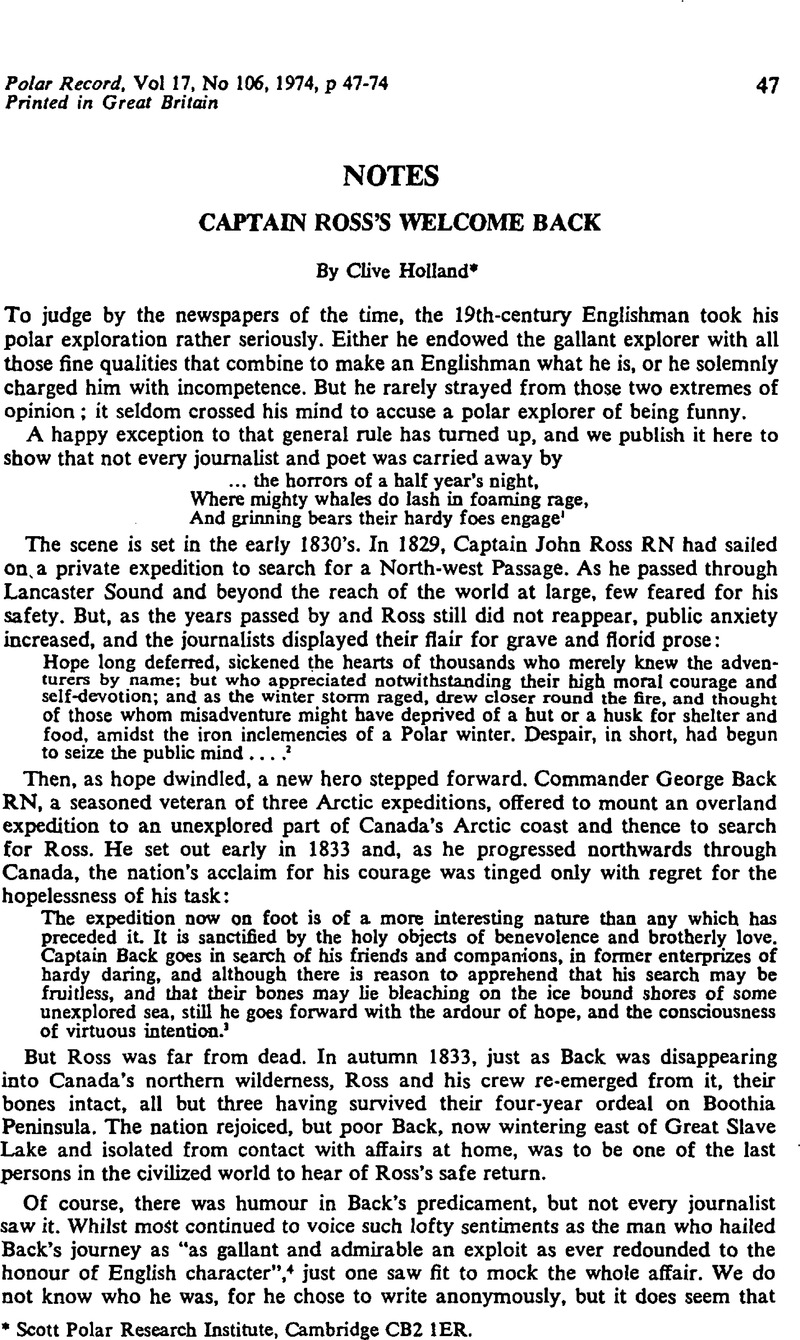No CrossRef data available.
Published online by Cambridge University Press: 27 October 2009

1. Extract from a poem, “The Arctic Regions”, by W. Frodsham; manuscript in the collection of the Riveredge Foundation, Calgary, Canada. The Foundation has several such poems written in celebration of the safe return of Ross in 1833.
2. Extract from an article in Montreal Gazette, 31 12 1833, p 1Google Scholar; reprinted from Dumfries and Galloway Courier. Scott Polar Research Institute (SPRI), Back Papers, MS 395, Folder 66.
3. Extract from a newspaper clipping of unidentified origin. SPRI, Back Papers, MS 395, Folder 66.
4. London Literary Gazette, 7 05 1836, p 1Google Scholar. SPRI, Back Papers, MS 395, Folder 66.
5. The Riveredge Foundation's copy was purchased from a London dealer in 1968. It seems unlikely that this copy is the original manuscript of the poem; more probably, it was copied from a newspaper. It differs only slightly from the version that we print: The title reads, “Captn. Ross's Welcome Home”; and in the fourth line of the second verse, the word “novel” replaces “uncivil”.
6. For another instance of leg-pulling, see Macleod, M. A. and Glover, R.Franklin's first expedition as seen by the fur traders. Polar Record, Vol 15, No 98, 1971, p 669–82CrossRefGoogle Scholar. This article includes a skit on the conduct of John Franklin and his men during their expedition of 1819–22, but it was written in northern Canada, where naval explorers were treated with rather less reverence than at home.
7. Reprinted from The Albion, 4 January 1834, p 6.